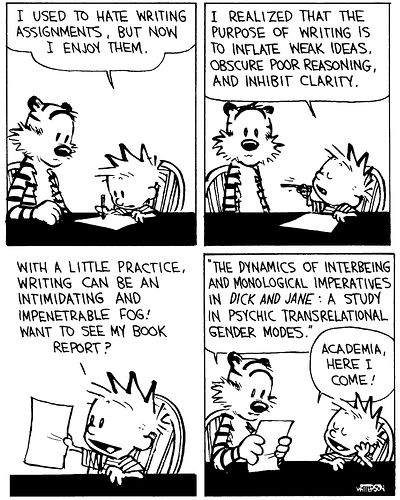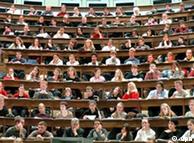Searching for info on the postdoc experience
There isn't a whole lot out there specifically relevant to social science postdocs - unless you are looking for one. When I broadened my search, to postdocs and postdoc blogs (just trying to get a feel for others' experiences) I got a couple of hits from bloggers in biological and physical sciences. Reading their stuff was rather depressing, and maybe I've been super-protected at UGA but the professors in the anthropology department here don't treat other people so poorly - colleagues, grad students, or the occasional postdoc. I also did a search for women postdocs since I fit into that special category too. Again, more depressing stuff. I'm hoping that the nasty stuff I've read applies to the biological and physical sciences, and that social scientists have their shit together for the most part. I get the sense that my new mentor and department do have their act together, but I may run make friends in other departments and it would be helpful to understand a bit where they might be coming from. As my mom tells me, forewarned is forearmed.
A couple of the postdoc blogs from my search:
Dent Cartoons: NIH Post-doc Life
YoungFemaleScientist
I also looked for books and came up with a couple of good reads.
Gray, Paul and David Drew. 2008. What they didn't teach you in graduate school: 199 helpful hints for success in your academic career. Stylus: Sterling, VA.
This book was not only funny, but useful in terms of looking at the entire academic career arc (not just the postdoc).
COSEPUP. 2000. Enhancing the postdoctoral experience for scientists and engineers: a guide for postdoctoral scholars, advisers, institutions, funding organizations and disciplinary societies. National Academy of Sciences. National Academies Press.
This entire text is available free on the National Academies Press website (linked above). You do have to create an account, but it is free and gives you access to other free book pdfs.
Other articles and links:
The National Postdoctoral Association
Best Places to Postdoc in 2006 (most up-to-date stats I found)
The 3 Worst Places to be a Postdoc
Penn State also has their own Postdoctoral Office and Postdoc Society.
Given all the resources out there on the web (despite the under-representation by social scientists, or maybe I'm not looking where I should), it is interesting that most of the information is about finding a postdoc, rather than the day-to-day experience of a postdoc. Perhaps this is a byproduct of the amount of work postdocs are expected to do - I hope it is the work and not something else.
If anyone finds this and wants to leave a message about their experience - particularly if you did a social science postdoc, I'd love to hear about it.
















